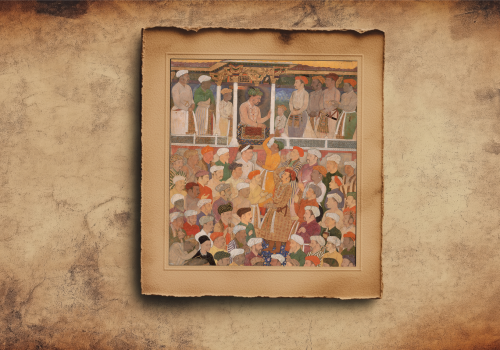He made an attempt to recover the territory in 1826 but was defeated and imprisoned. Ram Singh, also referred to as Ram Singh Wazir, probably succeeded his father in the office of minister and remained with his master during his exile. Around 1844, he joined the service of Maharani Jind Kaur. According to his confessional statement after his arrest in 1849, he was sent by the Maharani in early 1848 with a secret message to join Bhai Maharaj Singh and to act according to the latter`s orders. Ram Singh met the Bhai atJharig, where he was given sufficient funds and was told to organize a revolt in his native hills as a part of a general uprising being planned by Bhai Maharaj Singh against the British, who had been in virtual occupation of the Punjab after the first AngloSikh war (1845-46).
Ram Singh led an insurrection in the Bari Doab at the close of 1848 and even threatened the British possessions in theJalandhar Doab, while the Sikhs under the Atarivala Sardars, Chatar Singh and his son, Raja Sher Singh, had openly challenged the British. Ram Singh`s campaign acquired such proportions that even the British GovernorGeneral, Lord Dalhousie, took note of it in a letter he addressed to Sir Frederick Currie, the Resident at Lahore. BrigadierGeneral Sir Hugh Massy Wheeler, commanderJullundur Field Force, had to launch action against him in which at least four infantry battalions and two cavalry regiments took part.
This force ultimately defeated Ram Singh in a battle fought on 8 January 1849 at Bassu or Barisa, near Nurpur. Ram Singh himself was seriously wounded but escaped and took refuge in Jammu territory. He was ultimately arrested and tried as a rebel. No precise information is available as regards the sentence awarded. The general surmise is that he was transported for life to Singapore where he died.
References :
1. Ahluwalia, M.L., Bhai Maharaj Singh. Patiala, 1970


